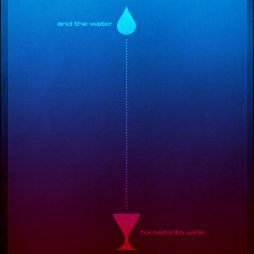 Historically, there have been a number of instances when official church bodies have staunchly opposed scientific discoveries and technological advancements. Some of these ended tragically, with the lives or careers of brilliant scientists snuffed out because their work was too threatening to established religious doctrines. The debate over science's role within religious contexts is still raging to this day, and sometimes it is brought to a head by a technological invention that seems to directly defy a story or idea presented in sacred texts. For example, some may consider a recent invention a direct challenge to the allegory of Jesus Christ turning water into wine at the wedding at Cana. The Miracle Machine, which claims to be able to make wine out of water, is currently in development. If it makes it to market, it may invite questions regarding the Biblical story and the role of religion in a technological world. When issues like this arise, it may be beneficial to take a step back from the immediate situation and observe the true intent of religious teachings, rather than their specific details.
Historically, there have been a number of instances when official church bodies have staunchly opposed scientific discoveries and technological advancements. Some of these ended tragically, with the lives or careers of brilliant scientists snuffed out because their work was too threatening to established religious doctrines. The debate over science's role within religious contexts is still raging to this day, and sometimes it is brought to a head by a technological invention that seems to directly defy a story or idea presented in sacred texts. For example, some may consider a recent invention a direct challenge to the allegory of Jesus Christ turning water into wine at the wedding at Cana. The Miracle Machine, which claims to be able to make wine out of water, is currently in development. If it makes it to market, it may invite questions regarding the Biblical story and the role of religion in a technological world. When issues like this arise, it may be beneficial to take a step back from the immediate situation and observe the true intent of religious teachings, rather than their specific details.
How the Miracle Machine Works (From a Lay Point of View)
First of all, it's a bit of a misnomer to call this an appliance that turns water into wine, as it requires several other things to be completed:
- Grape concentrate
- Yeast
- Finishing powder
The process also requires a smartphone, as users need to download an app that provides recipes and updates on the concoction's progress. The makers of the Miracle Machine claim that within a couple of days you will have a wine that tastes like it has been aged for months. While all of this sounds very fun and interesting, it is surely a far cry from the Biblical parable.
Philosophical Issues Raised by Such Inventions
Despite the fact that the Miracle Machine is really nothing like the story of Jesus' miraculous feat, it does raise some interesting questions and issues regarding technology and religion. For example, what if someone really did invent a machine that turned water into wine in a manner that seemed to mirror the Biblical story? What, if anything, would that disrupt? Perhaps a bigger issue here is not whether a miracle can be replicated through technology, but whether people have a real understanding of what messages these allegories are meant to convey. Is the point of the water to wine story that Jesus could turn one substance into another? Or was it really trying to speak about something larger?
If a water into wine appliance does make it to market, it may stir up some controversy among certain religious groups. However, it could also provide an opportunity for people of all faiths to examine the role of technology within their own lives and make determinations on how they wish to navigate these spiritual issues.
Add Your Comment